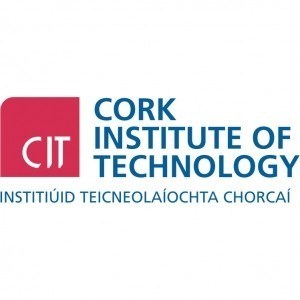Photos of university / #tcdglobal
The Bachelor of Science in Occupational Therapy at the University of Dublin is a comprehensive, professionally oriented undergraduate programme designed to prepare students for a rewarding career in healthcare. This programme provides a strong foundation in the fundamental principles of occupational therapy, emphasizing both theoretical knowledge and practical skills necessary to assess, plan, and implement therapeutic interventions that enable individuals to participate fully in daily life activities. Throughout the course, students explore various areas including human anatomy, physiology, psychology, and biomedical sciences, complemented by courses in occupational performance, intervention strategies, and health promotion.
The programme is structured to foster critical thinking, clinical reasoning, and evidence-based practice, ensuring graduates are equipped to address diverse needs across different populations and settings. Students have the opportunity to engage in supervised clinical placements in hospitals, community health settings, and rehabilitation centres, gaining hands-on experience and developing essential professional skills. Emphasis is also placed on teamwork, communication, and ethical considerations, aligning with international standards for occupational therapy practice.
The curriculum incorporates innovative teaching methods, including case studies, simulation exercises, and interprofessional education, to enhance learning and prepare students for real-world challenges. The programme also encourages engagement with research activities, enabling students to develop a scholarly approach to their practice and contribute to the advancement of the profession. Upon successful completion of the degree, graduates are eligible to register with professional bodies and initiate their career as qualified occupational therapists.
The BSc in Occupational Therapy at the University of Dublin aims to produce competent, compassionate, and lifelong learners dedicated to improving the quality of life for individuals facing physical, mental, or developmental challenges. It offers a supportive academic environment, access to state-of-the-art facilities, and opportunities for continued professional development. Graduates are well-equipped to work in a variety of settings, including healthcare, education, social services, and community programs, making a meaningful difference in people's lives through tailored therapeutic interventions.
Occupational Therapy at the University of Dublin offers a comprehensive and interdisciplinary program designed to prepare students for a rewarding career in healthcare. This degree programme provides students with a strong foundation in the core principles of occupational therapy, including medical sciences, human development, psychology, and social sciences. The curriculum emphasizes the importance of client-centered practice, enabling students to develop the skills necessary to assess, plan, and implement therapeutic interventions tailored to individuals of all ages and backgrounds.
Throughout the course, students engage in both theoretical learning and practical experience. The program includes modules on anatomy, physiology, pathology, and pharmacology, which build the scientific knowledge required to understand various health conditions and functional impairments. Students also explore areas such as mental health, pediatric therapy, neurological rehabilitation, and community-based interventions. A key component of the program is the development of clinical reasoning and communication skills, ensuring graduates are well-equipped to collaborate with patients, families, and multidisciplinary teams.
The program incorporates extensive supervised practice placements in diverse healthcare settings, including hospitals, clinics, community health centers, and special education facilities. These placements enable students to apply their knowledge in real-world situations, hone their clinical skills, and develop confidence in delivering occupational therapy services. The university’s strong partnerships with healthcare providers facilitate a variety of placement opportunities, fostering a practical understanding of the profession's demands and expectations.
Graduates of the Occupational Therapy programme at the University of Dublin are prepared to work in various settings such as hospitals, rehabilitation centers, schools, and community organizations. They are trained to promote functional independence, improve quality of life, and advocate for their clients’ needs. The programme also emphasizes research literacy and evidence-based practice, empowering students to contribute to ongoing developments in occupational therapy and healthcare.
Upon successful completion of the degree, graduates are eligible to apply for registration with professional bodies, enabling them to practice as licensed occupational therapists. The university’s commitment to excellence in education, combined with its focus on practical training and research, ensures that graduates are highly competent, ethical, and compassionate professionals ready to meet the evolving challenges of the healthcare sector.
The Bachelor of Science in Occupational Therapy programme at the University of Dublin requires applicants to possess a minimum of two Higher Level Leaving Certificate subjects at grade C or above, including Mathematics and a Scientific subject such as Biology or Chemistry. In addition to academic qualifications, applicants must demonstrate relevant work experience or voluntary work in healthcare or community settings to showcase their commitment and understanding of the occupational therapy field. The programme is designed to provide a comprehensive foundation in health sciences, human development, and occupational therapy principles, requiring students to complete coursework in anatomy, physiology, psychology, somatology, and occupational science. Students are also expected to engage in practical placements throughout the programme, totaling a minimum of 1,000 hours, which are integral to developing clinical competencies and professional skills. Admission may involve an interview process to assess motivation and suitability for the profession. English language proficiency is compulsory for non-native speakers, with applicants needing to meet specified minimum scores in tests such as IELTS or TOEFL. The programme duration is typically three to four years full-time, depending on entry route and prior qualifications. Successful graduates are eligible to apply for registration with the Health and Social Care Professions Council, which is a prerequisite for practicing as an occupational therapist in Ireland. The curriculum emphasizes evidence-based practice, multidisciplinary teamwork, and ethical considerations in healthcare, preparing students for diverse clinical environments, including hospitals, community health settings, and rehabilitation centers. Maintaining academic progression and satisfaction in clinical placements is mandatory to ensure readiness for professional registration. The programme also encourages participation in research activities, seminars, and professional development workshops to foster lifelong learning and advancement in the occupational therapy profession.
The University of Dublin offers a comprehensive range of financing options for students enrolled in its Occupational Therapy degree programme. Prospective students are encouraged to explore various funding sources to support their studies and reduce financial burdens. Tuition fees for the Occupational Therapy undergraduate programme are set annually and can vary depending on residency status and selected modules. The university provides detailed fee structures on its official website, ensuring transparency for applicants. In addition to tuition fees, students should budget for expenses such as registration fees, insurance, books, equipment, and living costs.
The university offers several scholarships and bursaries aimed at supporting students academically and financially. These include scholarships based on academic merit, financial need, and specific criteria such as geographic origin or prior educational achievement. Applicants are advised to check the eligibility requirements and application deadlines for each scholarship well in advance. Furthermore, the university participates in national and European financial aid schemes, which students can leverage to fund their studies.
For domestic students, government grants and student loan schemes are available, administered through relevant national bodies. These financial aids can cover tuition fees and living expenses, thus making higher education more accessible. International students are also encouraged to explore scholarship opportunities and external funding sources relevant to their country of residence.
The university also provides guidance and resources to help students apply for financial aid, including workshops, informational sessions, and dedicated student support services. Many students opt for part-time employment opportunities on or near campus to supplement their income during studies. The university’s strong links with healthcare institutions and community organizations sometimes offer practical training placements that may provide stipends or compensation, supporting students financially.
In summary, the University of Dublin offers a robust array of financing options for Occupational Therapy students, combining institutional scholarships, government funding, external grants, and personal income strategies. Students are advised to carefully research and plan their finances in advance to ensure a smooth academic journey.
Occupational therapy is a vital healthcare profession focused on enabling individuals of all ages to participate fully in daily life activities. The University of Dublin offers a comprehensive undergraduate program in Occupational Therapy designed to prepare students with the knowledge, skills, and professional competencies required to excel in this dynamic field. The program emphasizes a holistic, client-centered approach, integrating theoretical foundations with practical experience to ensure graduates are well-equipped to meet diverse healthcare needs.
Students enrolled in the program engage in a rigorous curriculum that covers core areas such as human anatomy, physiology, psychosocial aspects of health, and rehabilitation sciences. The coursework is complemented by extensive clinical placements, which provide hands-on experience working in diverse settings like hospitals, community health organizations, and specialized treatment centers. Through these placements, students learn to assess clients' needs, develop individualized intervention plans, and evaluate outcomes, fostering essential skills in communication, problem-solving, and teamwork.
The program also focuses on contemporary issues in occupational therapy, including mental health, aging, injury rehabilitation, and disability management. Students are encouraged to develop evidence-based practice approaches and adopt innovative strategies to enhance client independence and well-being. Interdisciplinary collaboration is a key aspect of the curriculum, preparing students to work effectively within multidisciplinary teams.
Graduates of the Occupational Therapy program at the University of Dublin are eligible for registration with professional bodies and are well-positioned for employment across a broad spectrum of healthcare settings. The program aims to produce reflective practitioners committed to lifelong learning, ethical practice, and continuous professional development. In addition to clinical skills, students gain competencies in research methods and are encouraged to contribute to advancing occupational therapy practices through scholarly activity. Overall, the program aims to develop competent, compassionate, and adaptable occupational therapists capable of making a meaningful difference in individuals' lives and contributing positively to public health.









